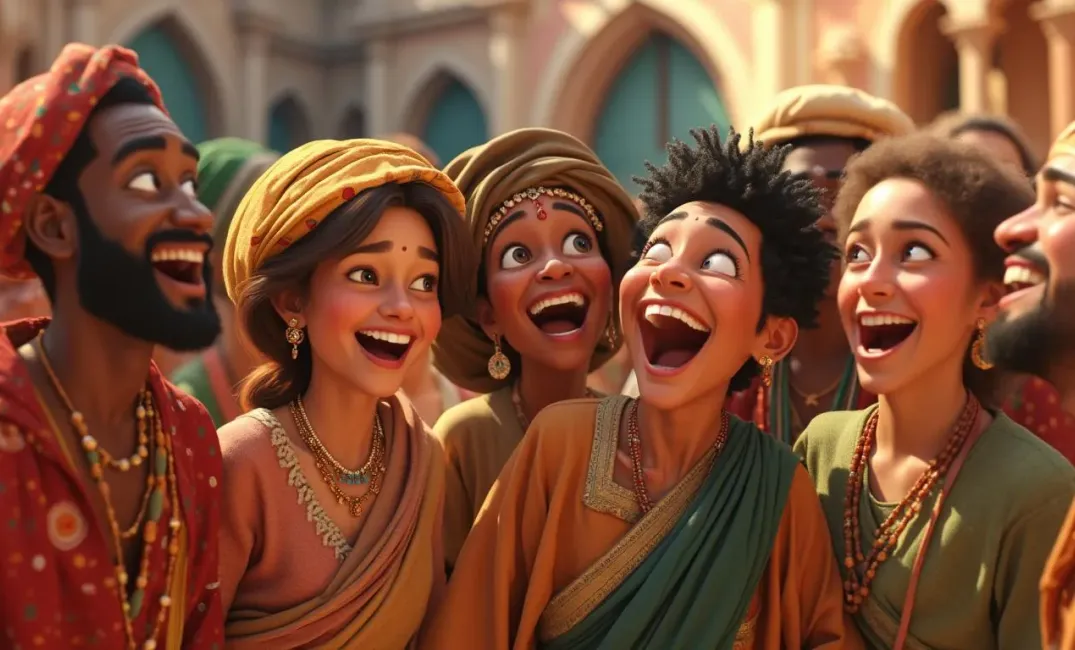Introduction: Laughter as a Universal Human Experience
"Against the assault of laughter, nothing can stand." — Mark Twain
Laughter, an expression both complex and spontaneous, transcends time, cultures, and language barriers. From ancient rituals to contemporary entertainment, humor is a fundamental human trait that defines, critiques, and celebrates the intricacies of human existence. Its power lies not just in its ability to amuse but in its capacity to provide solace, foster social bonds, and reflect societal norms.
In this exploration, we embark on a journey through the history, evolution, and impact of human humor. By understanding how laughter has woven its way through diverse cultures and epochs, we gain insights into its profound role in shaping identity and experience.
Ancient Laughter: The Birth of Humor
Ritualistic Origins and Early Expressions
- Tribal Celebrations and Festivals: Humor likely had its roots in early human societies through rituals and festivals where laughter served as a communal expression of joy, release, and unity.
- Animal Expressions of Play: Observations suggest that laughter's evolutionary origins could be linked to play behaviors seen in primates and other animals, a social tool for cohesion and bonding.
Humor in Ancient Civilizations
- The Greeks and the Role of Comedy: In ancient Greece, humor was institutionalized through theatrical comedies, such as those penned by playwrights like Aristophanes. These works often satirized politics and societal norms, providing cathartic release for audiences.
- Egyptian and Roman Humor: In contrast, Egyptian humor often played upon the foolishness of the gods or respected figures, while Roman culture thrived on satire, employing biting wit to comment on the foibles of political and societal life.
The Medieval and Renaissance Humor: Satire and Subversion
From Court Jest to Popular Entertainment
- Court Jesters and Fools: Medieval courts employed jesters who wielded humor to entertain and to covertly critique power without retribution, showcasing humor's dual role in entertainment and commentary.
- Carnival and Festive Humor: Festivals such as the Carnival inverted social hierarchies and norms, with humor as a key mechanism allowing societies to explore alternate structures and identities temporarily.
Renaissance Wit and Literary Humor
- Shakespearean Comedy: William Shakespeare's plays illuminated humor's evolution, blending wit, physical comedy, and wordplay to explore human nature.
- Erasmus and Satirical Literature: Figures like Erasmus employed satire to critique the Church and society, reflecting broader intellectual shifts and humor's adaptability in engaging with cultural dialogues.
Modern Humor: Exploration and Expansion
The Birth of Modern Comedy
- Vaudeville and the Borscht Belt: American vaudeville shows became landmarks of modern comedic performance, leading to the development of physical comedy traditions that informed film and television comedy.
- Chaplin and Silent Film Humor: Icons like Charlie Chaplin brought humor to the silver screen, employing slapstick to articulate universal themes that spoke to the human condition amid adversity.
Diverse Voices in Comedy
- Stand-Up Comedy Revolution: Stand-up comedy emerged as a powerful medium for personal expression and societal critique, with humorists like Richard Pryor and George Carlin challenging norms and provoking thought.
- Cross-Cultural Humor in Global Media: Globalization broadened humor's horizons, allowing diverse comedic voices to resonate worldwide. This cross-pollination highlighted unifying human experiences while respecting cultural specificity.
Humor's Power and Purpose
Psychological and Social Benefits
- Relief and Resilience: Laughter serves as a copious source of physiological and psychological benefits, reducing stress, enhancing resilience, and contributing to well-being.
- Bonding and Social Cohesion: Humor unites individuals, enhancing relationships and community cohesion. Shared laughter fosters solidarity, assisting individuals in navigating the complexities of human experience.
Humor as Critique and Catalyst
- Political Satire and Discourse: Humor remains a formidable tool for political critique, enabling society to challenge power structures. Satirical shows like "Saturday Night Live" and "The Daily Show" wield humor to promote civic engagement and dialogue.
- Breaking Taboos and Bridging Divides: Comedians often venture into taboo topics, encouraging reflection on societal prejudices and aspirations. This role highlights humor's potential to bridge divides and promote understanding.
The Future of Humor: Challenges and Opportunities
Digital Humor and Cultural Exchange
- Memes and Viral Humor: Digital platforms transform humor into ubiquitous and shareable forms like memes, engaging youthful audiences globally and democratizing humor creation and dissemination.
- Cultural Sensitivity in Humor: Navigating humor in an interconnected, pluralistic society necessitates cultural sensitivity. Recognizing diverse perspectives ensures humor's constructive role in enhancing cross-cultural dialogues.
Ethical Dimensions and Humor Evolution
- Maintaining Authenticity and Impact: As humor evolves, balancing authenticity with societal impact remains a critical inquiry. The advent of digital media prompts reflection on boundary-setting for humor's beneficial proliferation.
- Inclusivity in Comedic Spaces: Ensuring inclusivity within comedic spaces retains humor's potential as a positive social force. Amplifying marginalized voices fosters dynamic comedic landscapes that resonate across boundaries.
Conclusion: The Enduring Legacy of Laughter
"A day without laughter is a day wasted." — Charlie Chaplin
Laughter is an ineffable thread that stitches humanity together—an enduring legacy that cycles through history, criticizes, celebrates, and unites. As a reflection of human creativity and resilience, humor traverses temporal and cultural confines to offer relief, insight, and connection.
Looking forward, harnessing humor's transformative potential, while embracing its evolving complexity, encourages humanity to confront challenges with grace, creativity, and collective laughter. By seeking opportunities for empathy and unity through shared humor, we affirm laughter's timeless capacity to illuminate the human experience.
SOCIETY, LAUGHTER, CULTURE, MEDIA, COMEDY, PSYCHOLOGY, SATIRE, DIVERSITY, HISTORY, HUMOR

